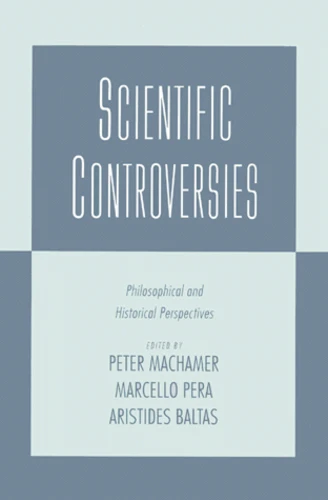Scientific Controversies. Philosophical And Historical Perspectives
Par : , ,Formats :
- Paiement en ligne :
- Livraison à domicile ou en point Mondial Relay estimée à partir du 9 décembreCet article sera commandé chez un fournisseur et vous sera envoyé 10 jours après la date de votre commande.
- Retrait Click and Collect en magasin gratuit
- Livraison à domicile ou en point Mondial Relay estimée à partir du 9 décembre
- Réservation en ligne avec paiement en magasin :
- Indisponible pour réserver et payer en magasin
- Nombre de pages278
- PrésentationRelié
- Poids0.57 kg
- Dimensions16,2 cm × 24,2 cm × 2,6 cm
- ISBN0-19-511987-8
- EAN9780195119879
- Date de parution21/06/2000
- ÉditeurOxford University Press
Résumé
Traditionally it bas been thought that scientific controversies can always be resolved on the basis of empirical data. Recently, social constructivists have claimed that the outcomes of scientific debates are strongly influenced by non-evidential factors such as the rhetorical prowess and professional clout of the rival researchers. This collection presents historical studies and philosophical analyses that undermine the plausibility of an extreme social constructivist perspective, yet indicate the need for a richer and more realistic account of scientific rationality. This vital collection gathers together original essays on historical and contemporary disputes in such diverse areas as physical chemistry, paleontology, Newtonian physics, and neuroscience. The essays carefully consider the nature of scientific controversy, how such controversies are resolved, and whether controversy is in tact necessary to the advancement of scientific knowledge. Some of the world's foremost thinkers in the history and philosophy of science, including Richard Grandy, Ian Hacking, Philip Kitcher, and Wesley Salmon, offer close studies of specific controversies ranging from the Copernican revolution to Darwinian evolution. While many of these absorbing case studies make serious contributions to the history of science in their own right, taken as a whole they provide an unparalleled look into the character of scientific debates.
Traditionally it bas been thought that scientific controversies can always be resolved on the basis of empirical data. Recently, social constructivists have claimed that the outcomes of scientific debates are strongly influenced by non-evidential factors such as the rhetorical prowess and professional clout of the rival researchers. This collection presents historical studies and philosophical analyses that undermine the plausibility of an extreme social constructivist perspective, yet indicate the need for a richer and more realistic account of scientific rationality. This vital collection gathers together original essays on historical and contemporary disputes in such diverse areas as physical chemistry, paleontology, Newtonian physics, and neuroscience. The essays carefully consider the nature of scientific controversy, how such controversies are resolved, and whether controversy is in tact necessary to the advancement of scientific knowledge. Some of the world's foremost thinkers in the history and philosophy of science, including Richard Grandy, Ian Hacking, Philip Kitcher, and Wesley Salmon, offer close studies of specific controversies ranging from the Copernican revolution to Darwinian evolution. While many of these absorbing case studies make serious contributions to the history of science in their own right, taken as a whole they provide an unparalleled look into the character of scientific debates.

